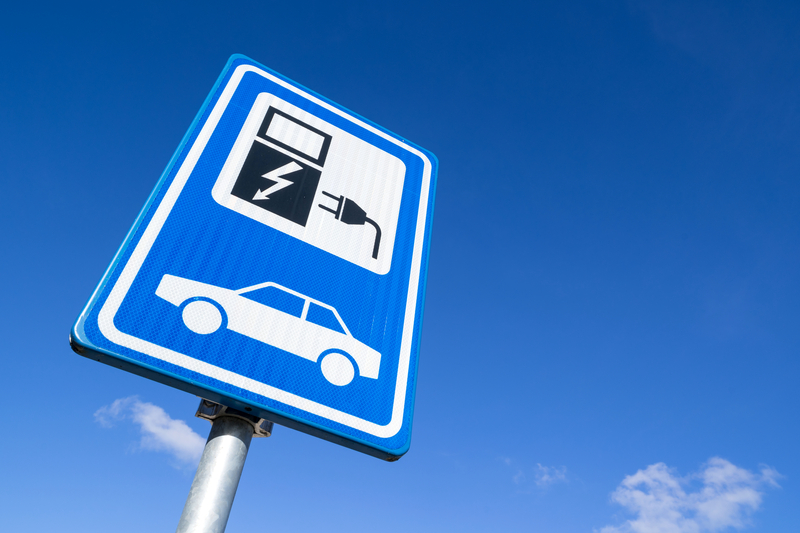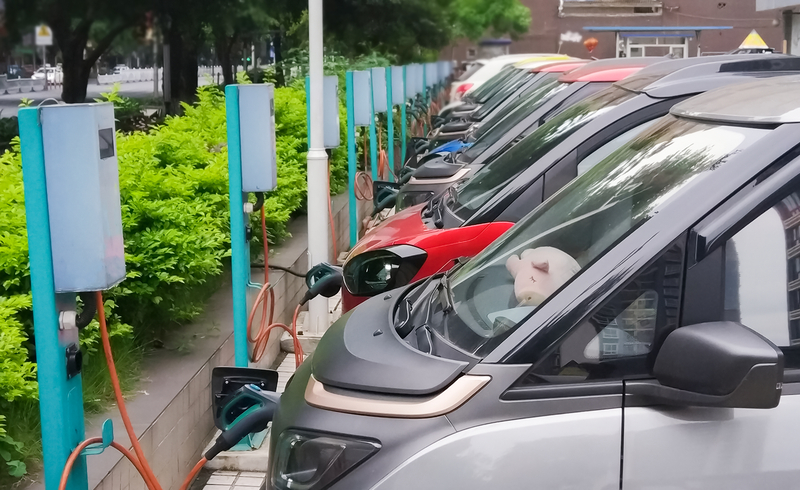Benefits of Installing a Commercial EV Charging System
This article is your complete guide to installing commercial EV charging stations! Because as more and more Electric Vehicles (EVs) hit the road, you may want to consider getting a commercial EV charging station for your property. From real estate developers and property managers to clean energy companies, businesses of all kinds have all enjoyed the benefits of installing an EV charging station. In this article, you’ll learn everything you need to know about the types of EV chargers, installation and maintenance costs, and why your ROI will be worth it.
At Aggressive Energy, we’re committed to helping you make sustainable decisions for your building energy consumption and your bottom line. Our clients rest easy knowing that they have our team of experts to lean on for energy market fundamentals, regulatory updates, and risk management.
Read on to learn more about commercial EV charging stations!
What is EV Charging?

Just like your smartphone, an electric vehicle operates thanks to a battery – so, it won’t work if that battery has no electricity stored in it and will need to be recharged. That’s where EV chargers come in, and there are a few different types of EV chargers that all have specific uses and energy requirements. For example, commercial electric vehicle charging stations similar to the ones you’ve probably seen in parking lots employ voltages a good deal higher than an at-home charging station, which means it can charge batteries much quicker.
Before you can decide which is the best EV charger for your business, let’s take a look at the different levels of EV charging stations.
Related Post: How to Make Reducing Carbon Emissions a Priority
What are the EV Charging Station Levels?
- Level 1 Charging
- Level 2 Charging
- Level 3 Charging
What is a Level 1 charging station?
The level 1 charging station offers the slowest charge, but is perfect for drivers who choose to charge their EV’s overnight and travel a maximum of 40 miles per day. It adds anywhere from 3.5 to 6.5 miles of driving range per hour of charging time. This makes it a great option for properties with tenants or anywhere people will have plenty of time to charge. EVs all come with a cable that can be plugged into a standard wall outlet, no EV charger installation needed.
What is a Level 2 charging station?
Level 2 EV chargers have a much quicker charge but need a specific charging station called electric vehicle supply equipment (EVSE). They’re found in a lot of public, high-traffic places and add about 14 to 35 miles of range per hour of charging time. A dedicated 240-volt or 208-volt electrical circuit is mandatory when installing a level 2 charging station. These commercial EV charging stations use the same type of charging cable as a Level 1 EV charger, so any EV can plug in at a level 2 EV charging station.
What is a Level 3 charging station?
Level 3 charging stations are designed for commercial use. They facilitate DC fast chargers to provide the fastest charging time – usually about an hour – of all levels. DC fast-charging stations typically add around 10 miles of driving range per minute of charging time.
How Much Does a Commercial EV Charging Station Cost?

A level 2 commercial EV charging station costs roughly $6,000 to purchase and install. EV charger installation costs can fluctuate depending on your property’s electrical needs, distance to the circuit panel, and how the charging station is mounted. The price fluctuates based on what the specific user needs. The most inexpensive base equipment with the least installation requirements will set you back $2,500. A higher-caliber level 2 charging station cost is typically between $10,000 to $13,000.
Incentive Programs to Save Money on EV Charger Installation

If you install EV charging stations at your business, you can earn some generous grants and rebates. Applying for federal and state incentive programs helps businesses to attract EV drivers, with no expenditures paid by the business. Below are some of the incentive options available for you to apply. The best part is that you can stack these incentives, which can substantially lower your commercial EV charging stations cost.
-
ConEd Make Ready Program: Offers up to 100% of utility side infrastructure costs.
-
NYSERDA Charge Ready Program: Covers up to $4,000 per charging port.
-
Federal tax credits: Rewards up to $30,000 for commercial EV charger installation at your business.
-
Stacking various programs means your out-of-pocket cost is minimal.
Benefits of a Commercial EV Charging Station

There are several benefits of installing commercial EV charging stations at your property. Here are three big ways your ROI will be worth the upfront EV charging stations cost.
Attract people to your business
As more and more people purchase electric vehicles, having EV chargers on the property brings customers to your business. Electric vehicle sales globally totaled 2.1 million in 2019, which is a 40% increase over the previous year. Now is the ideal time to invest in EV charging station installation because the EV market is forecasted to grow to $2.3 trillion by 2041.
Support the green energy movement
While it may just be a nice amenity to offer your employees so they can get their electric car charging at work, it could also be making a bigger impact on the environment. One of the biggest concerns people have when considering purchasing an EV is the fear that they won’t be able to find a charging station when they need one. The more businesses that install EV charging stations, the more people feel safe making that commitment to an EV.
Related Post: Renewable Energy Trends and Green Energy Facts
Open an additional source of income
If you already charge tenants to park, then charging a small additional fee for an EV charger parking spot can provide an extra source of income with minimum effort needed. On average, businesses charge 39 to 79 cents per kWh. Additionally, charging for the length of use, or time parked in the spot, encourages employees to move their cars once they’re fully charged, making space for someone else to use the charger. Charging an additional fee for the time that a vehicle is parked in the spot discourages gas-fueled vehicles from parking in the spot just because it’s the first spot they see.
At Aggressive Energy, we’ll make sure you’re reaping the benefits of every sustainability incentive you qualify for. We offer our clients the guidance and customized product structure they need to be successful. Contact us today!